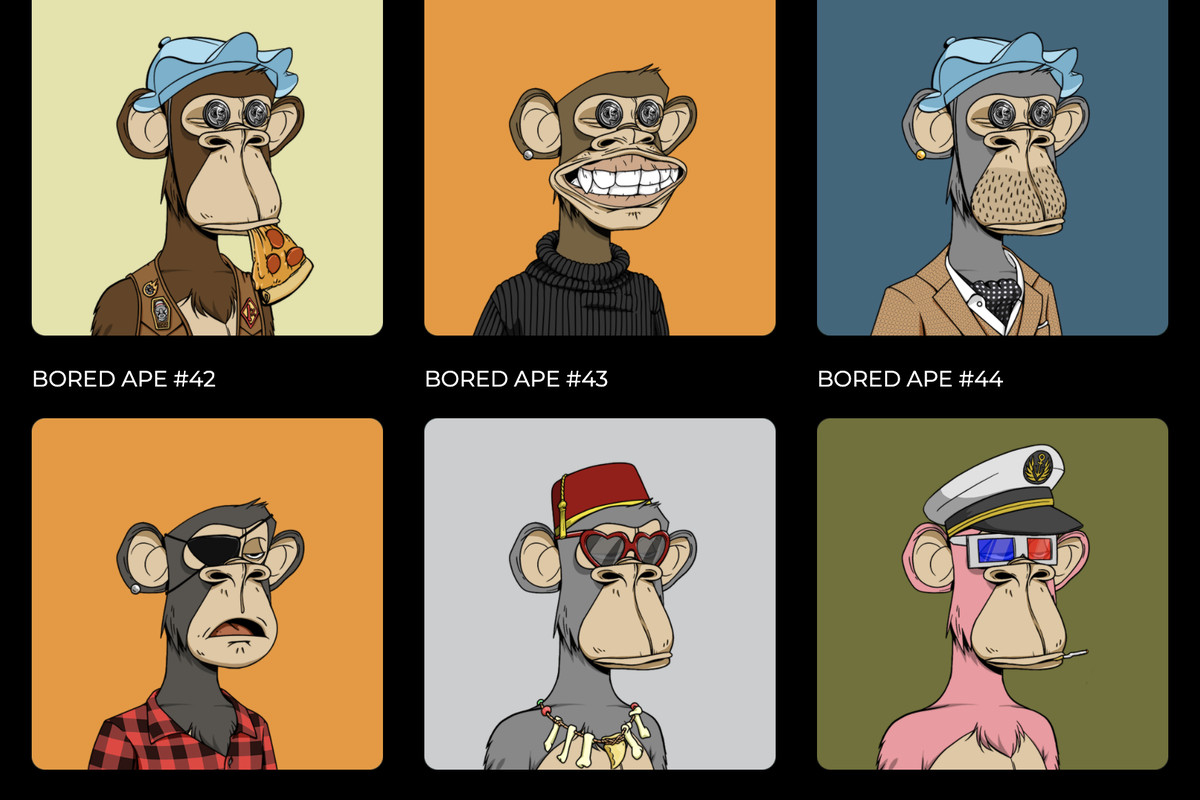Bored Apes creator sues conceptual artist for copying its NFTs

The company behind Bored Ape Yacht Club has sued conceptual artist Ryder Ripps for selling duplicates of its Bored Ape non-fungible tokens or NFTs. The lawsuit, filed in a California court this weekend, accuses Ripps of a “calculated, intentional, and willful” scheme to damage BAYC while promoting his own copycat work.
Ripps and Yuga Labs have been at odds for months, in part because of Ripps’ RR/BAYC NFT series. The series used BAYC images but connected them with a different crypto token and sold them for the equivalent of around $200 apiece, a bargain compared to the real thing, which currently sell for around $100,000 on the low end. “This is no mere monkey business. It is a deliberate effort to harm Yuga Labs at the expense of consumers by sowing confusion about whether these RR/BAYC NFTs are in some way sponsored, affiliated, or connected to Yuga Labs’ official Bored Ape Yacht Club,” says the lawsuit.
The suit accuses Ripps of false advertising and trademark infringement among other offenses. It asks for financial damages and a court order demanding he cease infringing on BAYC’s work, including a ban on using “confusingly similar” domain names like apemarket.com.
Ripps (who has also sold original NFTs) described his work as a twist on appropriation art, exploring “the power of NFTs to change meaning, establish provenance, and evade censorship.” He’s run similar projects before, including selling a slightly modified version of a CryptoPunk designed to poke fun at the series. “The lawsuit grossly mischaracterizes the RR/BAYC project,” he said in a statement on Twitter, asserting that buyers were explicitly informed they weren’t buying an official Bored Ape.
Yuga Labs rejects the claim that the work was satirical commentary. It portrays the work as part of a longer-running vendetta against the company — which Ripps has claimed is trolling its audience with racist references. Ripps has alleged the BAYC series makes frequent mentions of coded white supremacist words and symbols, including the creators’ pseudonyms, the BAYC logo, and the decision to create humanoid apes, something he alleges is part of the broader racist tradition of comparing Black people to apes. While he’s not the only person to make these claims, the Anti-Defamation League expressed doubts about his interpretations. Yuga Labs addressed the theory earlier this year, calling it “deeply painful,” and co-founder Gordon Goner offered a long rebuttal to Ripps’ allegations in a blog post on Medium.
Ripps is far from Yuga’s only concern. BAYC has spawned an ancillary “metaverse” project that’s hit road bumps on its path to launch, and it’s also affected by a bigger slide in the cryptocurrency market. However, it’s reached a level of fame most other NFT lineups haven’t thanks to things like a recent Eminem and Snoop Dogg music video promoting the artists’ Bored Apes.
Ripps’ work — among other copycat NFTs — has raised questions about how copyright law should apply to crypto art. And Ripps references the fact that BAYC copyright terms seem somewhat confusing and contradictory. But this suit doesn’t accuse Ripps of copyright infringement. So, rather than offering an early look at how courts will treat that issue, it will hinge on factors like whether Ripps was legitimately confusing people with his work — or whether people were buying into the project specifically because it wasn’t BAYC.

